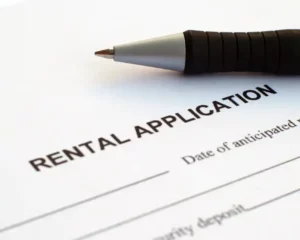Understanding the Legal Responsibilities of Property Managers
Owning a property can be a lot of work, especially if you plan to earn extra money by renting it out. Rather than deal with all the legal duties around landlord-tenant relationships, consider hiring a property manager. For more information, here are some of the legal responsibilities of property managers and how they can help you.
What is Property Management?
Property management involves overseeing and managing real estate properties, including residential, commercial, and industrial properties, on behalf of property owners. Property managers have several legal and contractual responsibilities to help maintain these properties and the tenants. Essentially, property managers act as intermediaries between landlords and tenants, making managing a property (as an owner) much easier.
A reputable property management company will have detailed contracts outlining their duties, legal responsibilities, and any liabilities they’ll be responsible for. As a property owner, it’s essential to only partner with experienced property managers with clearly outlined contracts. If you have any questions or concerns, it’s best to consult with an attorney to ensure you safeguard your assets during the partnership.
Legal Responsibilities of Property Managers and Property Management Companies
Property managers and property management companies carry a variety of legal obligations to both property owners and tenants. These responsibilities cover everything from creating fair rental prices to ensuring properties comply with local, state, and federal regulations. This includes both long-term rentals and vacation rentals. Below are some of the primary legal requirements that property managers have.
Creating a Fair Rental Price Based on Market Standards
Although owners may have some say, property managers are responsible for setting the rental prices. In fact, setting a competitive and fair rental price for properties is one of the main legal responsibilities in property management. This price is based on market trends, neighborhood demand, and comparable properties. However, pricing can fluctuate for various reasons, so it’s important to work with your property manager to understand their decision better. Property managers must also avoid discriminatory pricing and ensure the rental rate complies with local rent control laws.
Financial Management
In addition to setting fair rental prices, property management companies are also legally responsible for all of the financial management surrounding the leased property. This includes appropriately handling sensitive information, security deposits, monthly rent, and any financial records that occur in the process. Tenant information needs to be handled in accordance with any laws and regulations to avoid disputes and reduce the risk of security breaches that could result in financial damage.
Complying With Fair Housing Laws and Regulations
One of the most important responsibilities of a property manager is adhering to and complying with federal laws and regulations associated with rental properties. Specifically, property managers must adhere to the Fair Housing Act, which prohibits discrimination based on race, color, religion, sex, disability, familial status, or national origin. This applies to advertising rental properties, tenant selection, and lease agreements.
Failure to adhere to this legal compliance can result in hefty fines and, in some situations, legal battles with tenants. Luckily, when you work with a property manager, they take on these risks and are responsible for potential legal disputes. This means you won’t need to navigate legal responsibilities regarding property management or deal with the liability surrounding them.
The National Association of Residential Property Managers also has a code of ethics and conduct, which outlines the professionalism and rules that property managers need to follow. You can read more about this here.
Complying With State-Specific Regulations
Depending on where you live, your property manager may also need to follow specific state or local laws. Managers need to know the applicable laws for their location, so working with someone well-versed in your particular state’s requirements is essential.
Each state also has specific regulations governing property management. For example, some states require property managers to hold a real estate broker’s license, while others only require certifications. Staying compliant with state regulations is crucial for property managers to avoid penalties or loss of business licenses.
Staying Updated With and Enforcing Landlord-Tenant Laws
In addition to government-mandated regulations, there are some specific landlord-tenant laws and requirements that property managers must follow. Specifically, they need to be well-versed in landlord-tenant laws that revolve around rules on security deposits, rent increases, evictions, and lease termination. Property management companies are then responsible for enforcing the policies outlined in the lease agreements, which could involve confronting tenants violating terms or addressing safety issues.
Finding New Tenants and Handling the Screening Process
Finding prospective tenants is one of the most challenging parts of renting out a property. This includes all the factors surrounding finding a suitable tenant, from advertising and marketing to applications and employment verification. The tenant screening process is another legal obligation of property managers, typically including background and credit checks.
Dealing with Tenant Concerns or Complaints
Property management companies are also legally obligated to take a tenant’s complaint seriously, especially involving another tenant (i.e., in an apartment complex or multi-unit family house). For example, if one tenant files a complaint that another was stalking or cyberstalking, and then an assault follows, the property manager may be held liable for not taking action after the complaint.
While this is an extreme case, other concerns or complaints also fall under the responsibilities of a property manager. This can be everything from routine maintenance to more serious issues (i.e., stalking or dangerous living conditions).
Dealing with a Tenant’s Actions
Property managers also need to ensure that the tenants act legally and within their leasing agreement’s parameters. If, for whatever reason, a tenant needs to be evicted, property managers are legally responsible for handling it. However, they need to adhere to their state’s rules for eviction notices and ensure that the process remains both lawful and fair.
Taking Liability for Crimes or Injuries at Rental Properties
Certain potential legal liabilities fall under property management responsibilities. Since property managers are expected to maintain a safe environment for tenants, negligence could result in legal liabilities.
For example, property managers could be held liable if crimes or injuries occur on the property due to neglect, such as failing to fix broken locks or inadequate lighting. The same applies to health concerns such as mold, lead, or pest problems. Ensuring security measures are in place and addressing safety concerns promptly is a critical responsibility.
However, it should be noted that certain crime-related liabilities may only fall on the property manager when outlined explicitly in the contract. Therefore, both parties need to read and understand their commitment before forming a partnership.
Maintaining the Property
Routine maintenance and property upkeep are essential for preserving property value and tenant satisfaction. However, property maintenance also falls in the hands of a property manager, so owners don’t need to stress about any day-to-day issues. Property managers must coordinate repairs, manage contractors, and ensure all aspects of the property comply with safety and building codes. This can range from landscaping to more extensive maintenance like roofing or plumbing.
Some Pros and Cons of Partnering with a Property Management Company
As a property owner, it’s your decision whether or not you want to hire a property manager or property management firm. If you’re struggling with this decision, consider some pros and cons of partnering with a property management company.
Pros:
Experience and Expertise: Property management companies bring years of industry experience, ensuring that properties are managed professionally and efficiently.
Legal Compliance: Property managers are knowledgeable about local and federal laws, ensuring that the property complies with all legal requirements.
Tenant Relations: A dedicated property manager can improve tenant satisfaction by quickly addressing issues and maintaining good communication.
Time and Stress Relief: Property management companies handle day-to-day operations, allowing property owners to enjoy more passive income without the hassle.
Cons:
Cost: Property management services typically charge a percentage of the monthly rental income, which may reduce the owner’s profits.
Lack of Direct Control: Some property owners may find it difficult to relinquish control of their properties, especially in decision-making processes.
Potential Communication Issues: Miscommunication between property owners and management companies can lead to frustration and misunderstandings, especially if the property manager does not provide regular updates.
How to Find Reputable Property Management Services
If you choose to partner with a property manager, it’s important to find someone that you can trust. Remember, property management companies must comply with all their legal responsibilities, so it’s worth doing due diligence before you hire someone. When you need an experienced property manager, turn to First Star Realty.
First Star Realty always puts our client’s needs first, and we’re committed to maintaining ongoing communication so you can make informed real estate investment decisions. To learn more about our different property management services, contact us today.



